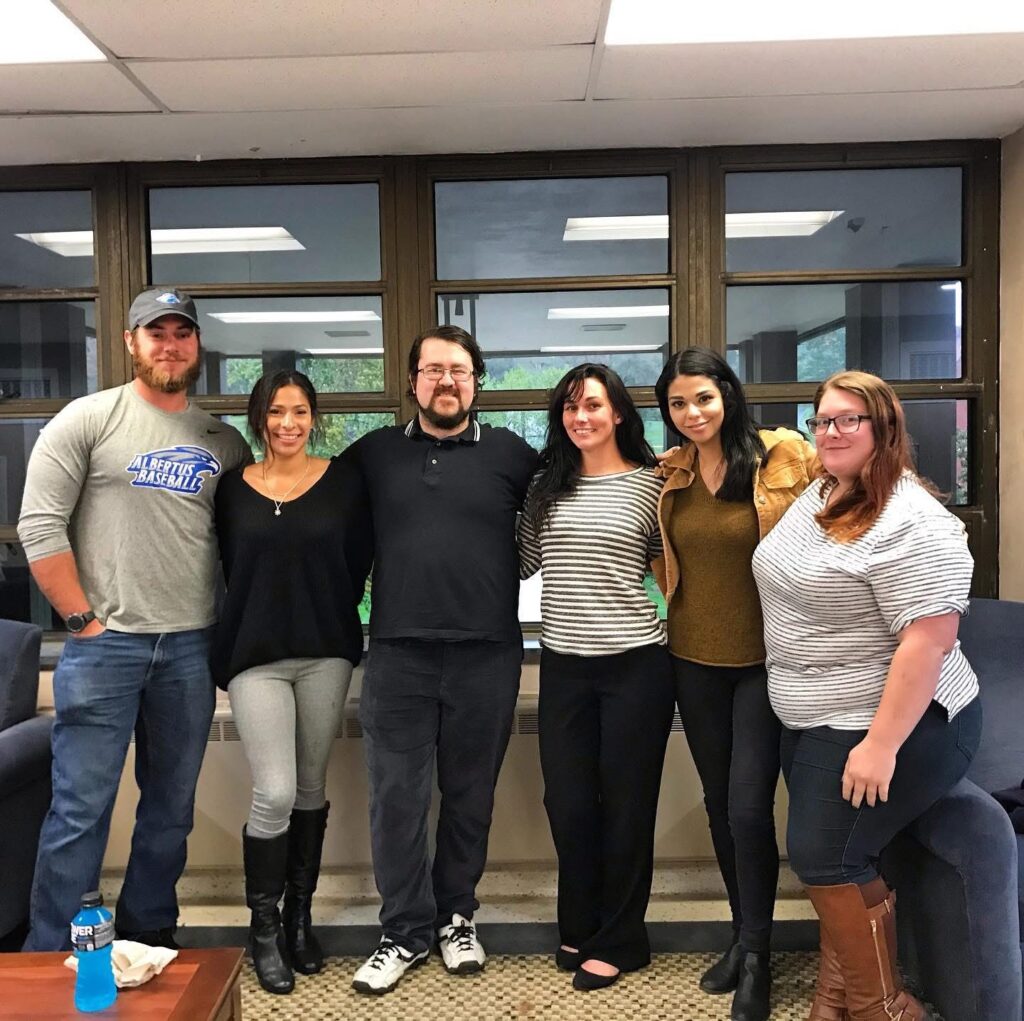Highlights of the MSCC Program
By: Siobhan O’Leary Evarts, Ph.D., Professor of Psychology, Director of the Master of Science in Clinical Counseling Program
The Master of Science in Clinical Counseling Program preps you for licensure and real life. This 60-credit program is completed over three years and meets Connecticut’s educational requirements for the Licensed Professional Counselor (LPC) credential. During the first two years, students take classes in the evening, enabling flexibility to work during the day, maintain income, and gain relevant experience. Students can also choose between the traditional “in person” modality and a “low residency” modality. Low residency students attend class meetings with the in-person students in live zoom meetings; additionally, they are required to attend two Saturday sessions in person each semester.
Knowledge of theory only matters if you can apply it effectively. Our clinical counseling
students complete a 120-hour practicum and a 600-hour internship at vetted counseling sites
under extensive clinical supervision. A unique feature of our program is that our dedicated
internship coordinator supports and oversees the placement process; what may have been a
solitary, stressful hunt elsewhere is a guided process here at Albertus.

The “Albertus Difference” is evident in our small class sizes, peer support, vibrant class
discussions, and the abundance of applied and experiential exercises within the curriculum.
Courses emphasize evidence-based practice, ethical engagement, and multicultural competence.
Concentrations: Students choose between two specialty tracks. The Mental Health Counseling
track offers more sophisticated training with assessment, advanced counseling techniques, and
case conceptualization. The Addiction Counseling track provides an opportunity for students to
take a deep dive into effective approaches to use with addiction treatment and is in alignment
with Connecticut’s Licensed Alcohol and Drug Counselor requirements (in addition to the LPC
educational requirements).
Life of the Graduate: Our graduates are well positioned to pursue a myriad of career
opportunities after obtaining licensure. Examples include clinical mental health counselor,
addictions counselor (LADC), intensive outpatient settings, private practice, and non-profit
community-based agencies. Students are able to begin accruing supervised LPCA hours as soon
as the application is approved by the department of health after graduation. An impressively high
percentage of our students have a job already lined up before they graduate (sometimes with
multiple job offers).
Applying to the Program: Do you want to make a difference in our community and challenge
yourself to cultivate these important counseling skills? Are you ready to take the next step in
your professional development as a future counselor? Click here to learn how to start your application with the support of our admissions team. There’s no time like the present to take this
exciting next step– Albertus is eager to welcome our next group of future counselors!
